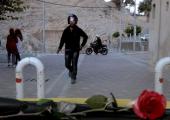Hungarian director Ildiko Enyedi’s On Body and Soul (Testrol es lelekrol) opens on a scene of cold. It’s beautiful, a winter forest landscape, deserted except for two deer: a huge stag and a small doe react to one another in the snow, a tentative interaction of eyes and noses, nothing more. There’s a tenderness to what we see, the vulnerability of the female set against the power of the antlered male, but also a sense of somehow icy withdrawal.
Enyedi is too subtle a director to treat this opening scene as a metaphor for what follows, the human dimension of her film, although its story is indeed of the tentative interactions between a man and a woman. And that sense of cold continues. Our feeling of withdrawal increases as her second scene proceeds: its setting is a slaughterhouse, cattle waiting, penned but not frightened – their eyes, again, enormously expressive. Then they are stunned with shocks of electricity, and the process of dismemberment begins: carcasses reduced to slabs of meat before our eyes, all accomplished mechanically, human involvement limited to the operation of machinery.
You emerge from it, soul scoured, in silence
It’s a remarkable, doubly alienating opening – remote beauty, immediate cruelty. We sense from its abattoir setting that this film is not going to be an optimistic one, our feelings somehow established by its penumbra of mood. One that is particularly East European, perhaps: Enyedi takes us close to desolation in On Body and Soul, although the darkness is not wilful, and it’s leavened by scenes of sparing bleak humour.
Her slaughterhouse protagonists are Endre (Geza Morcsanyi, a non-professional in his first screen role) and Maria (Alexandra Borbely). He is the company’s finance director, overseeing its operation from a professional but benevolent distance; the fact that one of his arms is paralysed somehow emphasises that. She is newly arrived, a quality inspector who grades the meat, a job that involves an exactness of reckoning that almost goes beyond the human.
And although never made specific, Maria is different, uneasy in human interaction and unable to appreciate humour or nuance: her blond beauty isn’t the only thing that recalls The Bridge’s Saga Norén. Maria inhabits a private world in which distinctions are absolute, very different from the one that surrounds her, where they are all too blurred. It’s a society where low-level corruption appears endemic, and may just be the fabric that keeps things together at all (any visit by officialdom to the abattoir invariably ends with a bag of choice cuts pressed into the hands of whoever may be signing off on the forms).
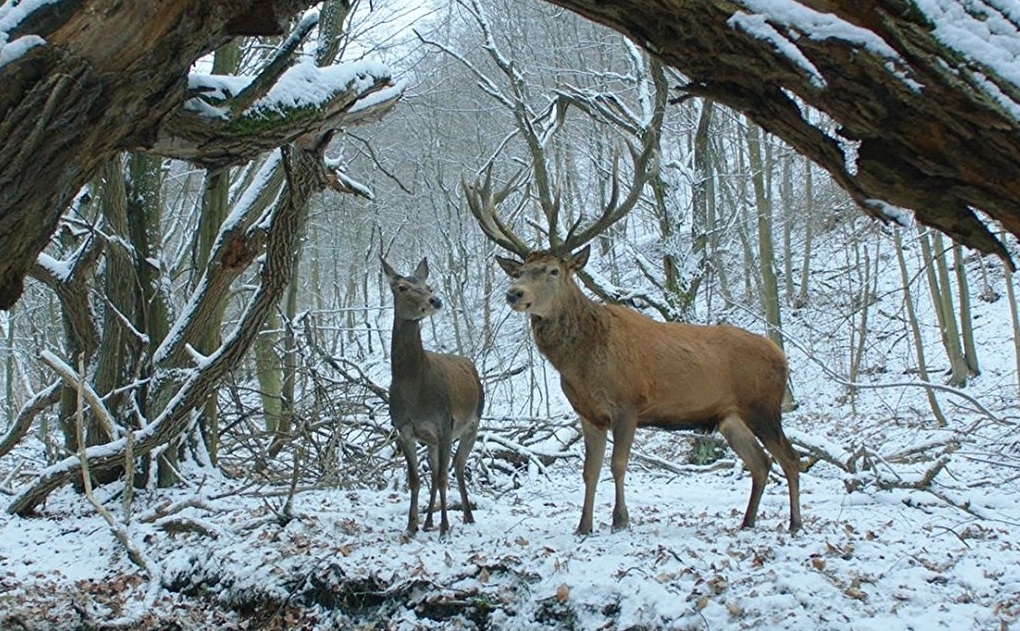 Enyedi is laconic about all of that, and there’s certainly no playing-for-laughs in her depiction of Maria. But, unlikely though it may seem, comedy is not far away. When a theft is discovered from the slaughterhouse veterinary store – bovine aphrodisiac of all things, why it is there at all a typical story – procedure dictates that a psychiatrist (Réka Tenki, very sassy) be brought in to interview staff. No subject is off-limits for her questioning, from earliest sexual experiences to last night’s dreams.
Enyedi is laconic about all of that, and there’s certainly no playing-for-laughs in her depiction of Maria. But, unlikely though it may seem, comedy is not far away. When a theft is discovered from the slaughterhouse veterinary store – bovine aphrodisiac of all things, why it is there at all a typical story – procedure dictates that a psychiatrist (Réka Tenki, very sassy) be brought in to interview staff. No subject is off-limits for her questioning, from earliest sexual experiences to last night’s dreams.
That ushers in the crucial development of Enyedi’s script, and puts the accompanying forest scenes in context: Endre and Maria, too tentative to express feelings to one another in life, are dreaming the same dreams, existing together in a parallel cervine night world (pictured above). That hackneyed line, “See you in my dreams”, becomes for them literally true.
The second half of On Body and Soul has the director negotiate the impact of that contact. Enyedi’s command of detail is exquisite, and best left to speak for itself. Suffice it to say that it can be both excruciating and curiously mundane. Moods move from the desperately comic – imagine Saga Norén forcing herself to feel anything, no matter whether it’s physical sensation or emotion – to the simply desperate, as we approach those iceberg expanses of desperate loneliness (the film’s closing track, Laura Marling’s “What He Wrote”, rings just right).
Ildiko Enyedi emerged on the cinema scene in 1989 with the hugely ambitious My Twentieth Century, for which she won the Camera d’Or prize for best first feature at Cannes that year. On Body and Soul is the first film she has made this century (she worked earlier this decade on the Hungarian version of HBO’s In Treatment, an experience which seems to have been in every sense therapeutic). On Body and Soul won the Golden Bear at this year’s Berlinale, its mood somehow in tune with the distinctive flavour of that festival. It would be an illusion to expect every viewer to be receptive to this remarkable film, but for those who are it sticks in the mind like a shard of broken glass, a jag of ice. You emerge from it, soul scoured, in silence.
Overleaf: watch the trailer for On Body and Soul


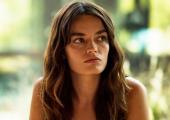

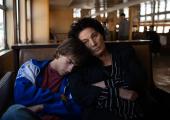
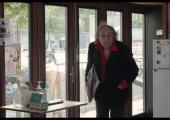
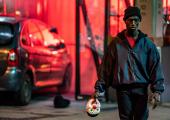

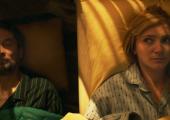
 Enyedi is laconic about all of that, and there’s certainly no playing-for-laughs in her depiction of Maria. But, unlikely though it may seem, comedy is not far away. When a theft is discovered from the slaughterhouse veterinary store – bovine aphrodisiac of all things, why it is there at all a typical story – procedure dictates that a psychiatrist (Réka Tenki, very sassy) be brought in to interview staff. No subject is off-limits for her questioning, from earliest sexual experiences to last night’s dreams.
Enyedi is laconic about all of that, and there’s certainly no playing-for-laughs in her depiction of Maria. But, unlikely though it may seem, comedy is not far away. When a theft is discovered from the slaughterhouse veterinary store – bovine aphrodisiac of all things, why it is there at all a typical story – procedure dictates that a psychiatrist (Réka Tenki, very sassy) be brought in to interview staff. No subject is off-limits for her questioning, from earliest sexual experiences to last night’s dreams.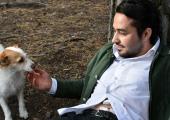
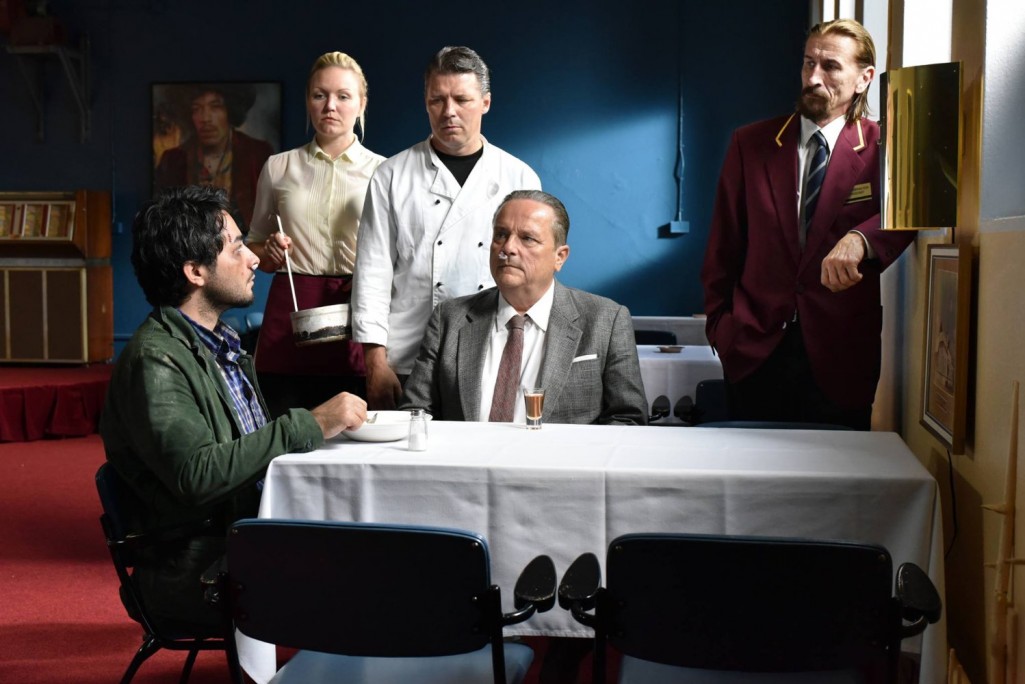 Wikström also jettisons his boring job selling clothes to small outfitters around the country. He flogs off his stock of cellophane-wrapped shirts for a derisory sum and is left with his big old car and a handful of cash. Instead of heading for sunnier climes, he buys a shabby drinkers’ dive, the Golden Pint, where fishballs are always dish of the day. The three surly staff haven’t had their wages paid in months and regard the new owner with suspicion. It's more than an hour into the film before Khaled and Wikström meet, and then it isn't exactly cute – a fight by the restaurants' bins – but a friendship develops.
Wikström also jettisons his boring job selling clothes to small outfitters around the country. He flogs off his stock of cellophane-wrapped shirts for a derisory sum and is left with his big old car and a handful of cash. Instead of heading for sunnier climes, he buys a shabby drinkers’ dive, the Golden Pint, where fishballs are always dish of the day. The three surly staff haven’t had their wages paid in months and regard the new owner with suspicion. It's more than an hour into the film before Khaled and Wikström meet, and then it isn't exactly cute – a fight by the restaurants' bins – but a friendship develops.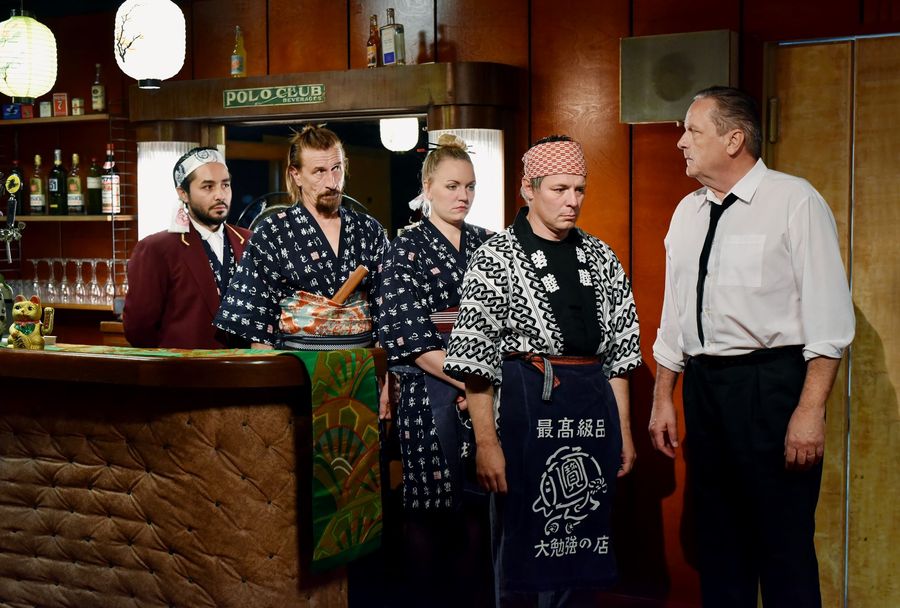 There are many familiar pleasures from the director whose biggest hit was Leningrad Cowboys Go America back in 1989. The Other Side of Hope generously showcases the indigenous bar band circuit of Finland. Who knew that there were still so many hairy Finnish musicians who sound like Dire Straits and sing fabulously miserable songs? And for those mourning Laika, the adorable dog in Le Havre, there is a new dog to provide some winsome comedy at the diner when the health and safety inspectors come to call.
There are many familiar pleasures from the director whose biggest hit was Leningrad Cowboys Go America back in 1989. The Other Side of Hope generously showcases the indigenous bar band circuit of Finland. Who knew that there were still so many hairy Finnish musicians who sound like Dire Straits and sing fabulously miserable songs? And for those mourning Laika, the adorable dog in Le Havre, there is a new dog to provide some winsome comedy at the diner when the health and safety inspectors come to call.